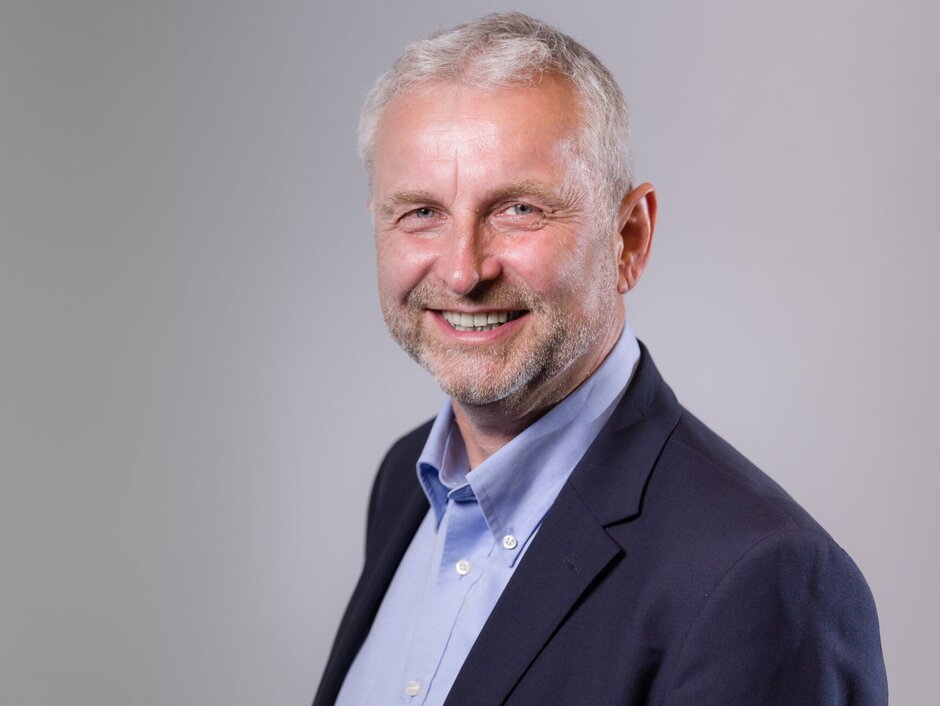Prof. Ralf Boden, professor at the Faculty of Electrical Engineering at the University of Applied Sciences in Dresden, sits on the city train from Kamenz to Dresden. If he lets his gaze wander, he sees other commuters who are spellbound on their screens, whether from their smartphone or tablet. They are the ones who connect a region to the outside world. Work in the cities, live in the country. Short distances and the numerous possibilities of the surrounding area create a regional bond that easily overcomes the simple city limits.
A piece of quality of life
Boden, 55 years old and a native of Kamenz, has now learned to appreciate commuting. After graduating from high school, he studied in Dresden, then worked in Radeberg and later in Bautzen. He has been a professor at the HTW Dresden for 10 years. Commuting accompanies him almost his entire professional life, for almost 30 years. And in the meantime he has come to appreciate this. "The time on the train is not lost. Unlike a car, you can still be productive. Prepare the lectures etc. This also creates some free time”, says Boden. He grew up in Kamenz, lives on the outskirts of the large district town in his own house with land, and has family and friends nearby. These were all reasons not to look for a place of residence closer to the job. Also because he has built up a lot over the years. "The good networking also gives me a whole piece of quality of life" Boden says. He actually only uses the car to be a bit more flexible and still save some time on the way home from the Kamenz train station. A city bus line would also be available here.
More development
If you look at the region, especially around Kamenz, Prof. Ralf Boden sees many advantages. This includes rural life with proximity to the big city, a good infrastructure for everyday needs and many cultural highlights, not only in the state capital. In addition, the unique landscape in the immediate vicinity also offers the “green” touch, be it Upper Lusatia, the Elbe Sandstone Mountains or the wine regions along the Elbe. Despite these many advantages, the region also has some catching up to do. “Our region lacks young people who we have to gradually win over to our cities and rural areas. In addition, there is often a lack of job opportunities for engineers in research and development. By concentrating on pure production, many companies do not have their own department that deals with these topics. Graduates in particular often lack the professional perspective in the region”, says Prof. Boden. And there are also some starting points for improvements in the social area. Above all, this includes holistic offers for families, workplaces, accommodation and social surroundings such as schools or day care centers. In addition, of course, the courses on offer have to be carried out further, a task that is to be solved primarily with the support of the HTW Dresden.
Young people to the region
In this context, he also sees the opportunities in the cooperation between HTW Dresden and the “Wachstumsregion Dresden”. “Together we want to try to solve the demographic problem in the region to some extent. The cities and municipalities should benefit from the extensive potential of returnees and, above all, involve the younger generation more closely.” This also includes the stronger link between students and companies in the region. But Prof. Boden starts earlier. He is always in the regional high schools to inform students about the possibilities of studying at the HTW Dresden. By using a common network, the growth region and HTW Dresden can also work well together.
At the main station Dresden, Prof. Boden gets off the train and moves with a bunch of young people towards the university. He will meet some of them later in a lecture. For many, the question of where to go will arise after graduation. So that this question can be answered with in the “Wachstumsregion Dresden”, the HTW Dresden and all those involved in the growth region work together.
Interview and Text: Peter Glumbick

